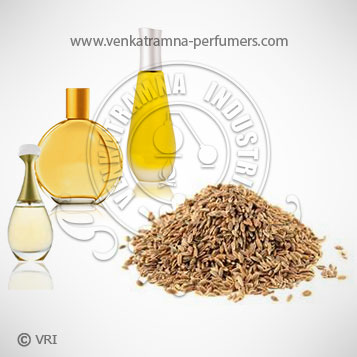
| Botanical Name | Anethum Graveolens |
| Common Name | Peucedanum graveolens |
| Country of Origin | Hungary,South West Asia |
| Solubility | Insoluble in Water, Soluble in Alcohol and Oils |
| Specific Gravity | 0.88400 - 0.90000 @ 25°C |
| Optical Rotation | +84.00 to +95.00 |
| Refrective Index | 1.47900 - 1.49700 @ 20°C |
| PlantPart | Seed |
| Bland With | Dill Seed works well with other spice oils, Elemi, Mint, and Caraway. |
| CAS No | 8006-75-5 |
| Flash Point | 128° F |
| Extraction Method | Steam Distilled |
The genus name Anethum is derived from Greek word aneeson or aneeton, which means strong smelling. Its common use in Ayurvedic medicine is in abdominal discomfort, colic and for promoting digestion. Ayurvedic properties of shatapushpa are katu tikta rasa, usna virya, katu vipaka, laghu, tiksna and snigdha gunas. It cures ‘vata’, ‘kapha’, ulcers, abdominal pains, eye diseases and uterine pains.. Dill is a member of the Umbelliferae (parsley) family. It grows to about three feet high with inflorescence of yellow flowers, appearing in the summer. The seeds of the plant are used to extract the oil. The root part of Anethum sowa L. is a rich source of mineral elements, essential amino acid and fatty acids. The essential oil is the highly potential as bioactive oil for pharmaceuticals and medical applications, possessing antioxidant, antimicrobial and cytotoxic activities.
The name is derived from the Norse word Dilla meaning to lull. The Anglo Saxons used dill medicinally for many health problems, but it was commonly used as a carminative; the Emperor Charlemagne kept it on his tables as a digestive aid for guests. Modern-day dill pickles are considered an appetite-suppressing food. Anethum sowa L. (Bengali-Shulfa) belonging to the family Apiaceae (Umbelliferae), comes under genus Anethum and it is an annual and winter spice crop in Bangladesh. It is mostly grown in the northern part of Bangladesh. A variant called Indian dill or sowa (Anethum sowa Roxb.) is largely cultivated in Bangladesh, India, Egypt and Japan. Indigenous people consume it as a spice for a flavoring agent in food preparation. The herb grows ordinarily 2–2.5 ft. in height with small feathery leaves, tapped and branched roots. The chemical composition of the essential oil of the two chemotypes i.e. European dill (Anethum graveolens L.) and Indian dill (Anethum sowa L.) are differentiated mainly by the apiol and carvone content. Anethum sowa is rich in apiol whereas Anethum graveolens is rich in carvone. The typical flavor of dill herb oil is due to α-phellandrene, limonene and dill ether (anethofuran). The green herb, seeds and its roots are used as folkloric medicine e.g. aromatic, carminative especially useful in the treatment of flatulence, colic and hiccups of infants and children. Recently, it has been reported that seed essential oils are the potential source of antioxidant and also have antimicrobial and antispasmodic properties
Color : Pale Yellow To Yellow Liquid with Cooling Herbal Green And Spicy Caraway Odor,
Aroma : Fresh, herbaceous scent that is gentle, warm and spicy.
d-carvone, dillapiol, dhc, eugenol, limonene, terpinene and myristicin, Carvone, phellandrene, eugenol, pinen
Aromatherapists credit Dill Seed Essential Oil with being stimulating, revitalizing, restoring, purifying, balancing and a cleansing agent. Anethum seeds are used as a spice and its fresh and dried leaves called dill weed are used as condiment and tea. The aromatic herb is commonly used for flavoring and seasoning of various foods such as pickles, salads, sauces and soups. Fresh or dried leaves are used for boiled or fried meats and fish, in sandwiches and fish sauces. It is also an essential ingredient of sour vinegar. Dill oil is extracted from seeds, leaves and stems, which contains an essential oil used as flavoring in food industry. It is used in perfumery to aromatize detergents and soaps and as a substitute for caraway oil. COMMON USAGE • Promotes digestion • Prevents insomnia • Maintains bone health • Manages diabetes • Prevents excess gas • Boosts immunity • Calms hiccups • Cures diarrhea • Treats dysentery • Relieves arthritis pain • Stimulates menstruation • Treats respiratory disorders • Oral care • Prevents cancer